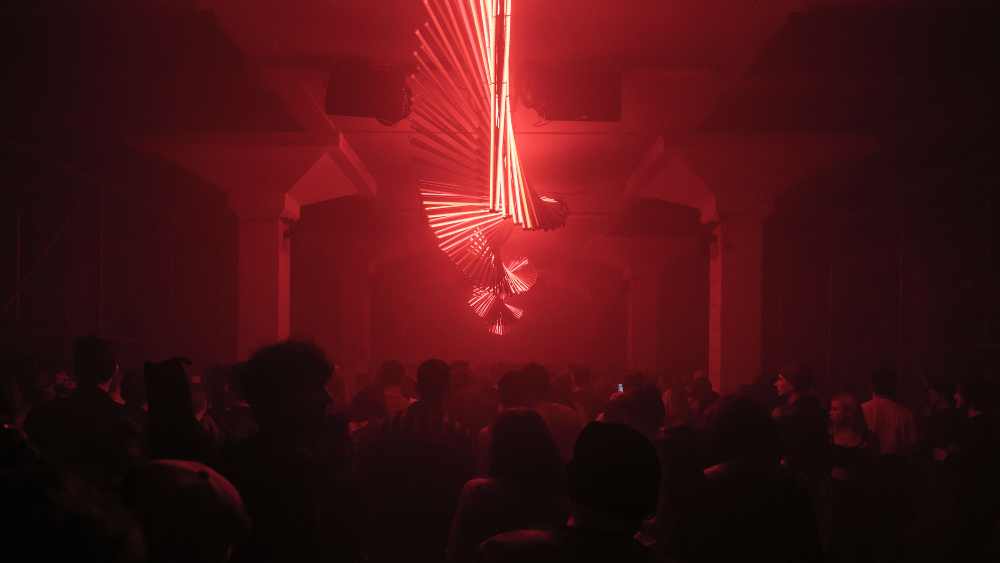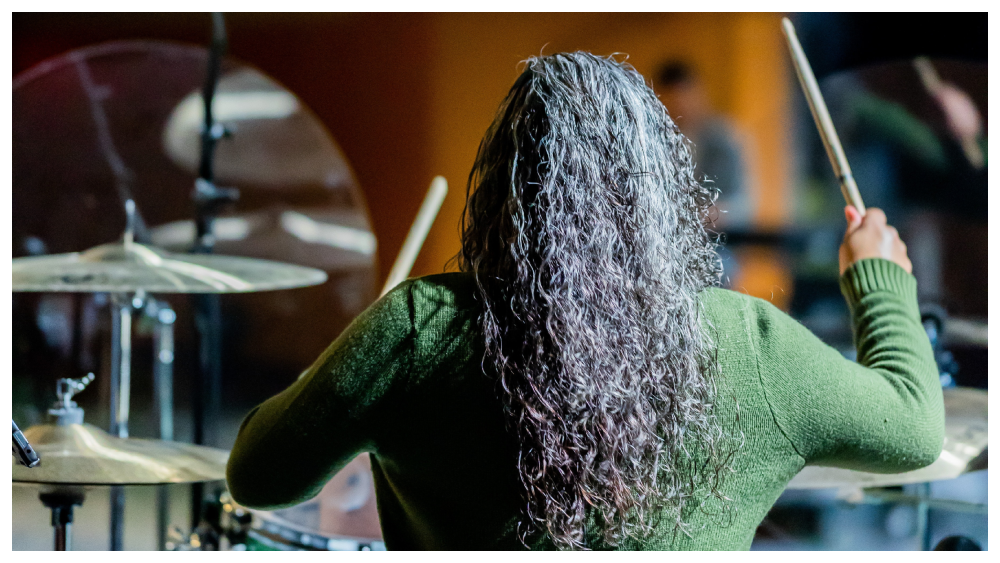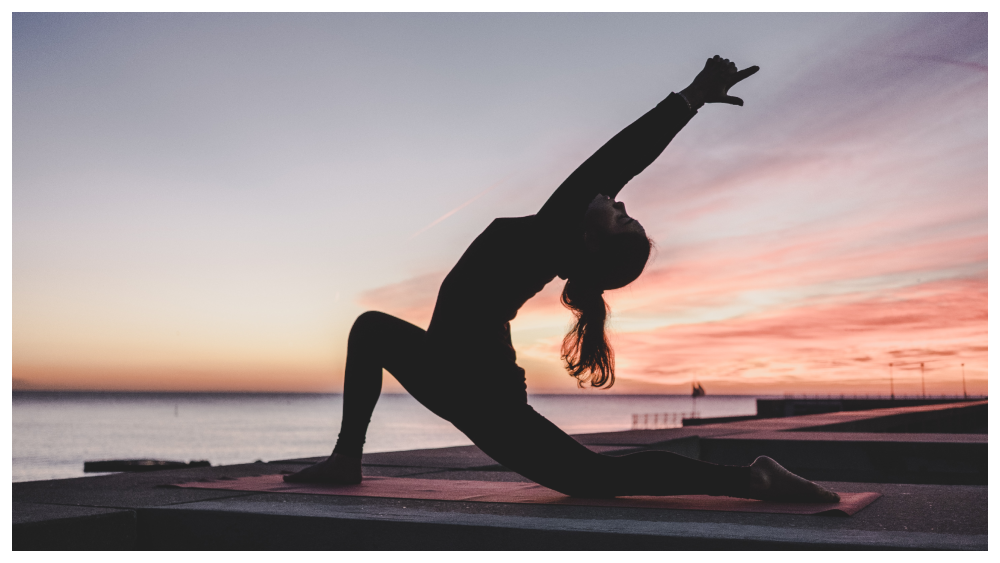I 'm genuinely surprised to be booking a UK tour. There’s the weird feeling that I’ve very much got used to not working, because I had to. I didn’t work much before COVID and I’m anxious, maybe even a little guilty, even thinking about doing gigs. Just because I tried very vocally to talk sense and caution during a deadly pandemic, here and elsewhere, doesn’t mean that I don’t want to work. Quite the contrary.
I always want to play music to people, it’s the best job in the world. But I don’t do it very often for two reasons. Reason one is that I made a pact with myself some time ago to that I would never do a gig unless I was 100 percent sure it would be outstanding. Few are. The second is simply that people just don’t book me much. I’m old and cranky, and the second part is a large problem for people who don’t like to be told to behave better. In many ways, I was well-equipped to handle COVID both emotionally and logistically. I already had a very laid-back relationship with work, was already poor and already spent most of my time indoors and on my own.
Then, just when you feel smug, a reality sandwich is served, cold. ‘This is fine’ for three months! Six months was a doddle. 10 months into COVID I was really feeling the pinch but hey, there are worse places to deal with it. 11 months was the limit of the non-existent goodwill of creditors. By 14 months I was effectively bankrupt. I will not recover financially in my lifetime.
'There’s a direct parallel with the very thing that’s impacted my own mental health the most this year: uncertainty.'
I certainly don’t regret not playing during the pandemic. How can there be a choice between people dying and my own comfort? I’ve been asked a few times to play a day, a week and a month after the mythical 21 June and I just don’t think things are ready. Both in the UK and in my head. The real problems for artists stem from the lack of support. It appears that for many of us, doing the right thing not only comes with zero help, it also comes with zero incentive for the hard of thinking, and if you are vocal about doing the right thing, it can even come with heavy penalties.
So why do I feel bad that I might be working again later in the year? I guess the ‘might’ part is a large factor. Insurance is essential for large events. Which insurer would possibly issue cover during a pandemic? The UK Government has roundly refused to step-in, ergo; no insurance without vast excess payments. Result; one-by-one, festivals announcing cancellations. A handful may go ahead at great risk to themselves, or perhaps it’ll be another case of ‘the richest prosper while the small go under’.
There’s a direct parallel with the very thing that’s impacted my own mental health the most this year: uncertainty. The complete inability to make plans in a business that is racked with uncertainty at the best of times. There is a large lack of leadership. Utter abandonment of morals. A dark vacuum of the soul ensues. The sun may be shining outside my window but what use is that when every month I fail to pay the bills? And I cannot say when it will end. Because, perhaps along with cruise ships, my industry will be the very last thing to recover. I can’t feel positive about booking a tour because I can’t be sure what happens next.
Survivor’s guilt is there a little. Perhaps even a touch of Stockholm Syndrome as far as COVID and my Government is concerned. I feel rage constantly. Anger at those who ignored. I try not to be furious at the brainwashed and fooled, but it’s not easy. I’m a solitary person too, but that can become very weird when it ceases to be a choice.
My first significant brush with mental health issues came some years ago, after about three weeks of wearing the same clothes and not going outside my flatmate stuck his head round the door and it just burst out of me: ‘Dude. I think …I think … I think I might be …depressed.’ He was a gay man and not exactly a stranger to shade. He looked me up and down, a cheap tracksuit overstuffed with hair and woe, and replied: ‘NO SHIT, STIG OF THE DUMP!’ He turned on his heels to embark on his usual routine of trying his best to completely avoid me. To this day I don’t blame him. It’s no fun at all being around a depressed person. It’s basically like having a really, really shit cat.
'I knew I had to participate in society, I just didn’t want to, at all. It was like being frozen in a block of ice. A sleepy insect preserved forever in amber.'
There are many forms of mental illness and depression on its own has different types. The most common take a dual form of being either ‘reactive depression’, which is essentially being ‘made’ depressed by very depressing events, having it imposed upon you, if you like. And the other is ‘endogenous depression’ which is deeper and more biological, a massive chemical imbalance that you can be born with and is more ‘internal’ in nature. The problem with this oversimplification is a question like: ‘What if you had a terrible thing happen to you, but you already had a chemical imbalance and didn’t realise?’. Well, I can answer that. You get told constantly that things will get better because ‘time heals’ and ‘trauma passes’. It doesn’t. It took a very long time to work out that I wasn’t ‘down’ because I’d been, to put it kindly, very unlucky for a long time. It was deeper than that. Even the word ‘sad’ is faintly ridiculous.
Depressed people can be the life and soul of the party. We can vastly over-compensate in social situations to hide behind a smiling mask. I used to get told to ‘cheer up’ all the time when I didn’t feel ‘bad’ at all. I just felt totally fine talking about the many things that were so very wrong with the world. Apparently examining your surroundings is a bad thing. And the more people decided that things that were complex and uncomfortable for them were negatives and ‘wrong’ the more I kept those people at as far a distance as I could manage.
Depression for me certainly was not about ‘happy’ or ‘sad’, but far more an issue of energy rather than temperament. I wasn’t objectively negative or ‘down in the dumps’, I just couldn’t MOVE. I knew I needed to go outside, but had a complex web of reasons both absolutely valid and hilariously nonsensical why I didn’t. I knew I had to participate in society, I just didn’t want to, at all. It was like being frozen in a block of ice. A sleepy insect preserved forever in amber.
The irony that I was an entertainer very much in the grip of anhedonia was almost funny. It may be a new word to some but it simply means the opposite of hedonism. Crowds were things to be avoided at all costs. Fun was boring. I couldn’t get excited because I was running out of new experiences after so many years at it. Nor was I relentlessly trying more extreme sensations, I just ground to a halt. Strangely, I started to feel some kinship with the younger generation of clubbers. They seemed familiar. They were dressing in a dowdy manner, seemed unimpressed by everything and very difficult to entertain. It does feel a little like everything has been done. Every film has been made. Every song sung. Every word used a billion times over. This grand ennui isn’t new. The French make an Olympic sport out of it. I do often question how much of it is clinical and how much is a perfectly sane and rational response to a very shit world. The one thing I will never accept about my own brand of ailment is that I was at fault. That if I just ‘got better’ the world suddenly erupts in bluebirds and roses. No, what I have never done is attempt to be ‘cured’ or sought out an impossible polarised scenario where I am ‘better’. My personal journey is one of management and acceptance.
'Personally, I pity anyone who identifies as normal. I try not to be patronising, but they seem so vanilla. I’m sure they are very nice folks and all that, but seriously, who the fuck wants to be normal?'
Why? Because I don’t think ‘normal’ exists. Anywhere, or ever did. Eventually we will realise there is no such thing as mental aberration, because a spectrum is called a spectrum for a reason. Everyone is not only on that spectrum, but everyone who ever lived was, and everyone ever born will be. I’m not medicated, I’m not ostensibly ‘unwell’. I’m just living with it. I’m experienced enough in my own skin now to know when I am in a manic phase and dialled-up a little tight. I am aware almost as if a narrator in my own life as to when I’m perhaps not reacting entirely rationally. Sometimes I can even manage it as it is unfolding and happening. I didn’t always. I spent many years as a queasy passenger on a very clunky vessel. I’ve just learned how to navigate, row and steer.
I rarely speak about it because, basically, people can be fucking hideous. If there is an opportunity for someone awful to inflict pain and dishonour upon you they will take it. I once told my story of being physically ill to a ‘friend’, a neurological, not a psychological issue, and literally the next day he ran around town telling everyone I was a lunatic. As soon as someone has the tag on you it can be used like an ace, a trump card anytime you displease them. Any action you take is that of a madman when seen through the prism of hate. Suddenly there is a new narrative. There is something ‘wrong’ with you. All your actions can now be distilled-down into a high octane syrup of bullshit that has nothing to do with reality. ALL your actions are now cast in a negative light. No reason is sufficient and most of all, no one else is ever to blame anymore. Only you are.
But those who have faced up to, endured and survived issues of mental health are the strong ones. The rich and strange. The iron souls. Veterans of hardship. Personally, I pity anyone who identifies as normal. I try not to be patronising, but they seem so vanilla. I’m sure they are very nice folks and all that, but seriously, who the fuck wants to be normal?
Currently, ‘COVID Anxiety Syndrome’ goes beyond just a fear of catching the virus. It’s people who have got the jabs still not wanting to go out. Staying-in even when restrictions are lifted. Perceiving a fairly healthy period of readjustment as a barrier, rather than opportunity. In a sense our minds are acting like an immune system over-compensating. We’ve trained ourselves to cope and are now having trouble letting that coping management system go. It has, without question, been traumatic. Even if you didn’t feel you personally suffered, we’ve been forced to watch all kinds of madness spin off from the ‘Culture War’ side-effect of the pandemic. It may take some time for some of us to let go of the fortifications we’ve erected during this siege. And that is just fine. Take your time.
'Letting-go is a superpower, one that is absolutely necessary for forward motion. We’ve been earthbound way too long, time to take flight once again.'
Listen! I’m not a doctor, far, far from it. All I’m suggesting is a change in attitude. Talking about mental health can provide ammunition for terrible people but it can also mean understanding. After understanding comes forgiveness. I learned a lot during the past year or so. I learned a lot about value, both in terms of surviving on nothing and valuing myself. I learned what matters to me in my industry. I learned why I am doing it, I learned that even for haunted badgers like me who often prefer their own company, that sense of connection with other people, whether playing them records or just hanging out, is fundamental. I understand my purpose very clearly now. If you’ve used this time to get to know yourself more fully, try not to forget to implement it, rather than launch directly into ‘business-techno-as-usual’ mode. I’ve learned that I can’t change the world overnight, so I’m trying to be less furious with it.
I learned that in order to survive mentally I had to learn about forgiveness. I’ve had to accept many things I cannot change. Serenity is not easy. It’s a subtle, delicate thing. Slight, but very powerful when mastered.
Letting-go is a superpower, one that is absolutely necessary for forward motion. We’ve been earthbound way too long, time to take flight once again. Maybe one secret to good mental health is that when you do find your wings, just pack what you need. Leave the heaviest of that baggage behind.
Follow The Secret DJ on Twitter.





